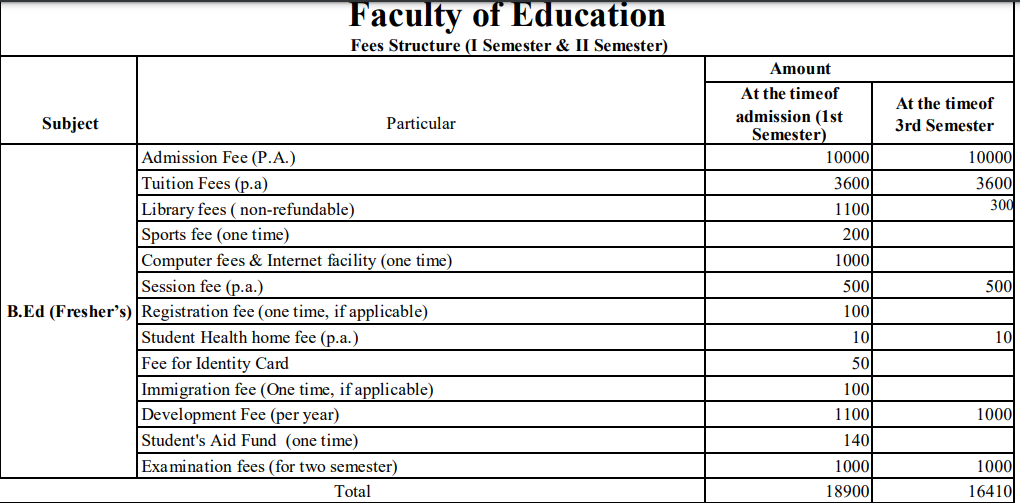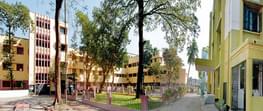- This includes a total tuition fee of ₹ 35,310.
- Candidates need to pay ₹ 18,900 in the first year.
Earlier, B.Ed fees at University of Kalyani was ₹ 35,010 (in 2021) for the entire course duration. This shows a fee increase of ₹ 300 over the year.
B.Ed at University of Kalyani is a 2 years, Full Time Degree program offered On Campus.
According to Collegedunia Education Ranking 2025, University of Kalyani ranks 105 out of 201 colleges in India with an overall score of 906 out of 2000 and a placement score of 0 out of 1000.
Find detailed University of Kalyani B.Ed fees, eligibility, admission dates, cutoff and ranking below.
| Course Highlights | Details |
|---|---|
| duration | 2 Years (Full Time) |
| course level | UG (Degree) |
| mode of study | On Campus |
| total fees | ₹ 35,310 |
| eligibility | Graduation with 55% |
Earlier, B.Ed fees at University of Kalyani was ₹ 35,010 (in 2021) for the entire course duration. This shows a fee increase of ₹ 300 over the year.
| Fee Type | Total Amount (INR) |
|---|---|
| tuition fee | ₹35,310 |
| total fee | ₹35,310 |

| Events | Dates |
|---|---|
| Commencement of Classes for Admission 2025 [B.Ed] | Nov 04, 2025 |
| Date of Admission for Session 2025 [B.Ed] | Nov 01, 2025 - Nov 03, 2025 |
| Publication of Provisional Merit List-1 for Admission 2025 [B.Ed] | Oct 31, 2025 |
Do you think the Dates are wrong ? Report Here
The university provides a degree-based course structure conducive to higher education, with many students successfully completing their master's degrees and passing the National Eligibility Test. However, the institution faces a significant drawback as it does not offer placement opportunities, with no companies visiting for recruitment. Some students manage to secure internships through alumni connections, though PhD students benefit more from such referrals.
A critical financial issue is highlighted by a student whose father's status as a government servant disqualifies them from receiving government assistance, leaving them unable to afford further resources, which underlines the need for additional financial support.
Search from 20K+ Courses and 35+ Streams
Do you think the data is wrong ? Report Here
.png?h=78&w=78&mode=stretch)


![National institute of Biomedical Genomics - [NIBMG]](https://image-static.collegedunia.com/public/college_data/images/appImage/16739_bio_new.jpg?h=111.44&w=263&mode=stretch)

![St. Xavier's College - [SXC]](https://image-static.collegedunia.com/public/college_data/images/appImage/14883539151444128217SXCKOLKATANEW.jpg?h=111.44&w=263&mode=stretch)

![Ramakrishna Mission Vivekananda Centenary College Rahara - [RKMVCC]](https://image-static.collegedunia.com/public/college_data/images/appImage/1487569899AppNew.jpg?h=111.44&w=263&mode=stretch)

![JD Birla Institute - [JDBI]](https://image-static.collegedunia.com/public/college_data/images/appImage/5859_JDBIRI_APP.png?h=111.44&w=263&mode=stretch)



![Swami Vivekananda Institute of Modern Science - [SVIMS]](https://image-static.collegedunia.com/public/college_data/images/appImage/1597650030unnamed.jpg?h=111.44&w=263&mode=stretch)

Comments